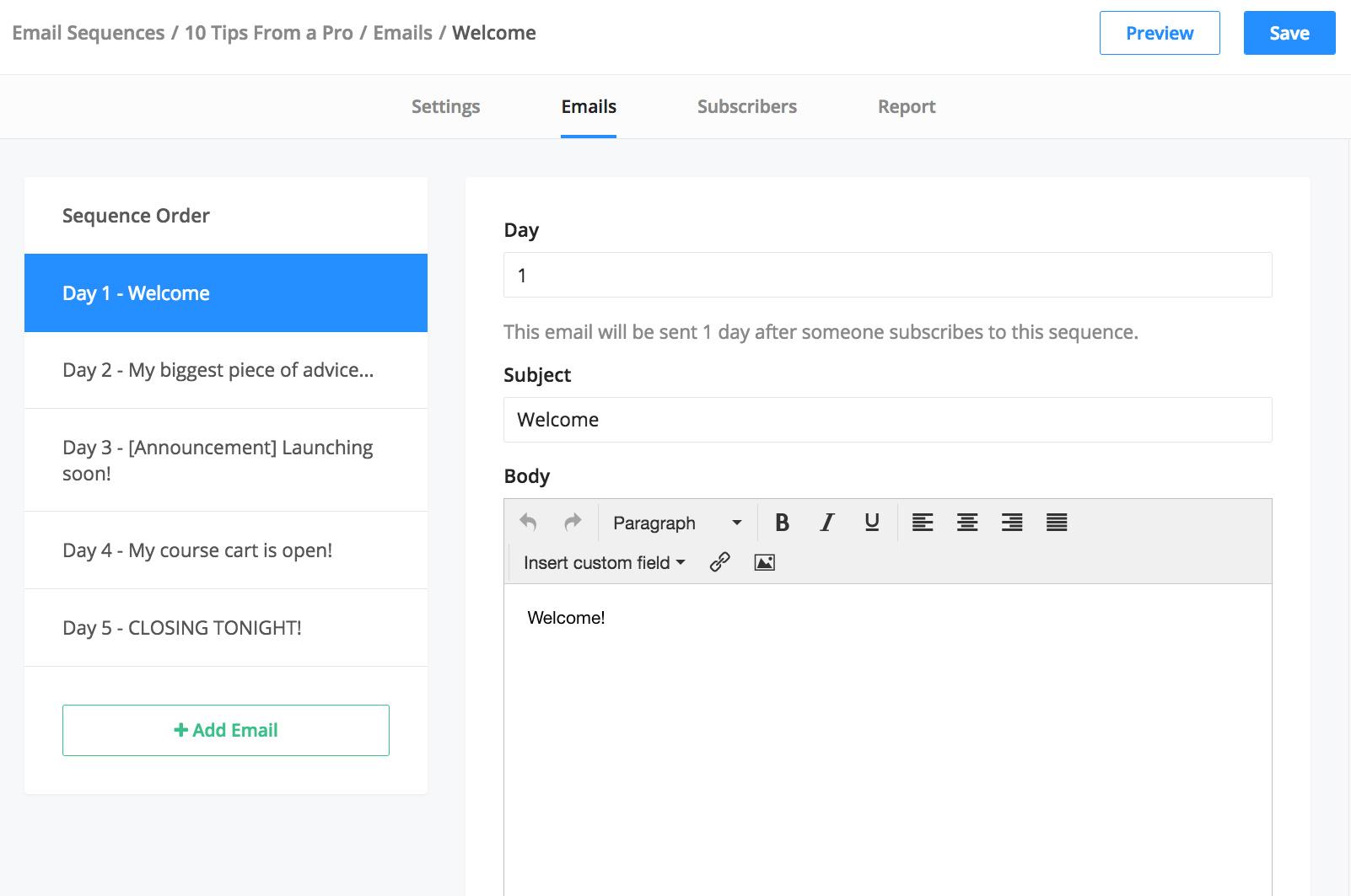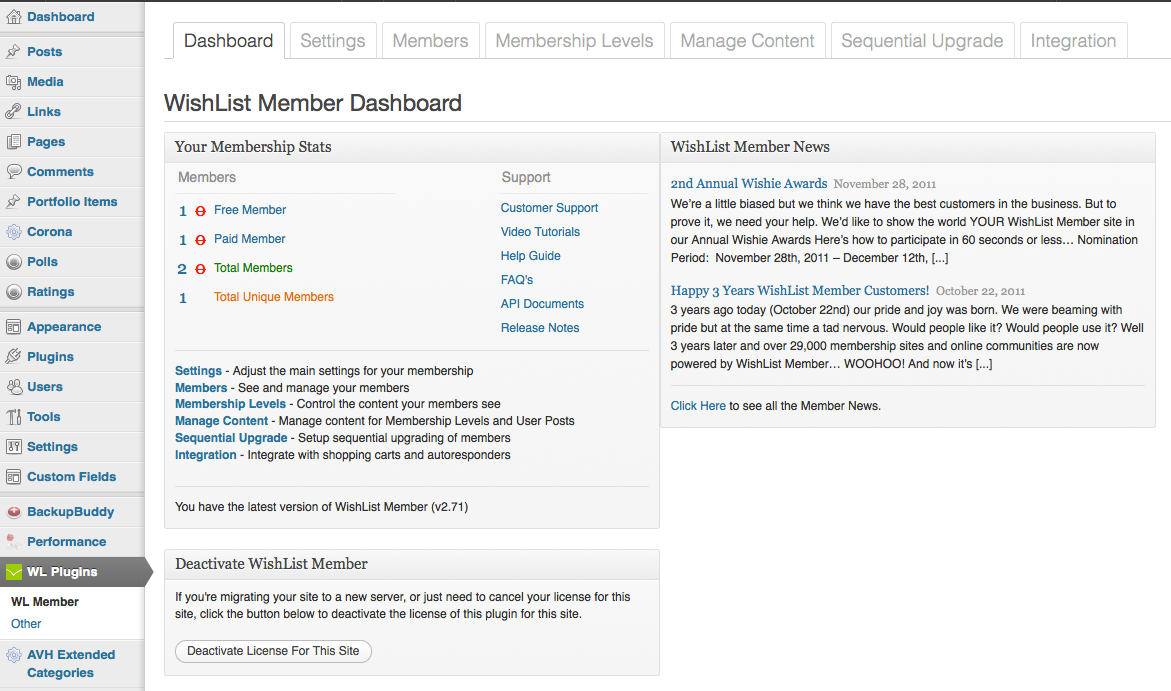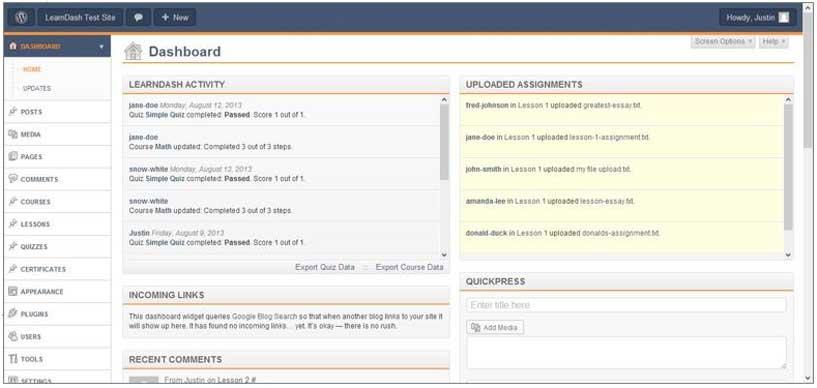
You have four options to choose from if you want to build online courses for profit. Four options sounds as if your choices are limited, but within those four options are independent varieties that are endless.
But your choice starts with your strategy, and where you see your business in five years time. Before you start fiddling with platform types, it’s essential to know what you want from a platform, or there’s the danger of making a choice, going with it and finding out a few months down the line that you’re not satisfied with the features. Big problem.
Once you understand the difference between each platform type, you’ll need to investigate the features of each tool, and only then should you dip into your pockets and commit.
Onwards to learning about learning!
Option 1: Branded Learning Management System
The branded LMS platform is ideal for businesses that don’t already have their own website, as it’s kind of a “business in a box” system which includes a customizable themed website, plus everything else you’d need to create, manage, sell and promote online courses.
All of them provide landing page templates and give you the option of drip feed content so you can control content via email.
Although they all typically offer the same features, some are more sophisticated than others. For instance, Kajabi includes marketing features like autoresponders and opt-in forms that you won’t find in their competitors’ offerings.

Features in LMS platforms vary slightly; Kajabi offers an email autoresponse feature which others don’t.
If you go this route, you also have the option – for some Learning Management Systems – to have your site hosted by the LMS, or integrate it with your WordPress website. For instance, Kajabi, Thinkific, Teachable and Ruzuku are all competing Learning Management Systems with most of the same features, but only Thinkific, Teachable and Ruzuku allow integration with WordPress, so that courses appear to be housed on your site.
The other differences between platforms of this type, is that some give you a blog, as well as a website and landing pages, but some only give you landing pages and exclude blogging functionality.
While one may be more expensive than another at first glance, it could work out cheaper in the long run if it eliminates other third party services, as for instance, Kajabi does with it’s total marketing solution.
So there are important considerations to be made within each LMS type, and the choice you make for each one should depend on your business strategy.
Option 2: WordPress Membership Plugins
WordPress is the most popular content management system today, and because of that, the benefits that come with it are great support and multiple options; paid and free.
There are free and paid membership plugins too, but again, you need to do your homework and base your selection on your business strategy.
Most WordPress membership plugins are affordably priced, but the majority need to be paid annually. Once you’ve made your choice, it’s pretty easy to install the plugin.
But be warned: if you’re not too familiar with how WordPress works, setting up your online courses with this option can feel daunting. This is because you may still require additional 3rd party services and plugins to achieve your aims. This could work out quite costly, so be sure to find out exactly what you’ll need before going with this option.

WishlistMember is a WordPress plugin. This is what it looks like from the dashboard once installed.
Option 3: LMS Plugins for WordPress Websites
LMS plugins are similar to WordPress membership plugins, with the exception that you can do more with them as far as courses go.
At an additional cost, the top LMS plugins usually cater for add-on functionality, like modules which are broken into lessons, and the ability to keep track of student progress, as well as adding quizzes or certificates.

Example of a WordPress LMS plugin’s dashboard.
Option 4: Syndication Sites
Online course marketplaces or syndication sites like Skillshare or Udemy, are a good choice if you don’t want the hassle of setting up your own website, or maybe you want an additional source of income.
The key benefit of syndication sites are that they are stable and profitable enough to do a tremendous amount of marketing – marketing that you’d need to do on your own if you choose another type of platform. And they are free to use, so are an excellent starting point for newbies.
Chances are you may make a sale a lot faster than going it alone.
But. You’ve got to know that you may be up against a serious amount of competition by other solopreneurs just like you, with the same course topic. The key with this option then, is to do it better than your competitors.
These marketplaces simplify the online course set up process, because they’ve already worked out all the issues.
The cons of this option is that you are at the mercy of the marketplace. Once you’ve uploaded your content, it’s in their hands even though you still own it. If they decide to have a sale, well, you don’t really have a choice: a sale there will be. Added to that, you are forced to abide by their guidelines and structure.

Skillshare’s landing page. The special offer at the top of the page is a classic example of being forced to participate in their promotions.
You may save set up costs with this option, and if you do go with this medium, do yourself a favor and use the money you’ve saved to build an epic landing page – hire freelancers to write and create your videos if that’s what it takes. When prospective clients land on your course description, it must entice them enough to sign up with you and not your competitor.
Summary
Before starting your foray into online course options for building a business, create a business strategy. This will help you in selecting the right software right from the beginning.
Once that’s done, choose a platform type that’s going to suit you, and then find out the variations between each tool within that platform.
Platform options are summarized as:
- Your own branded website that’s hosted by the LMS platform
- WordPress membership plugins
- WordPress LMS plugins
- Online course marketplaces








